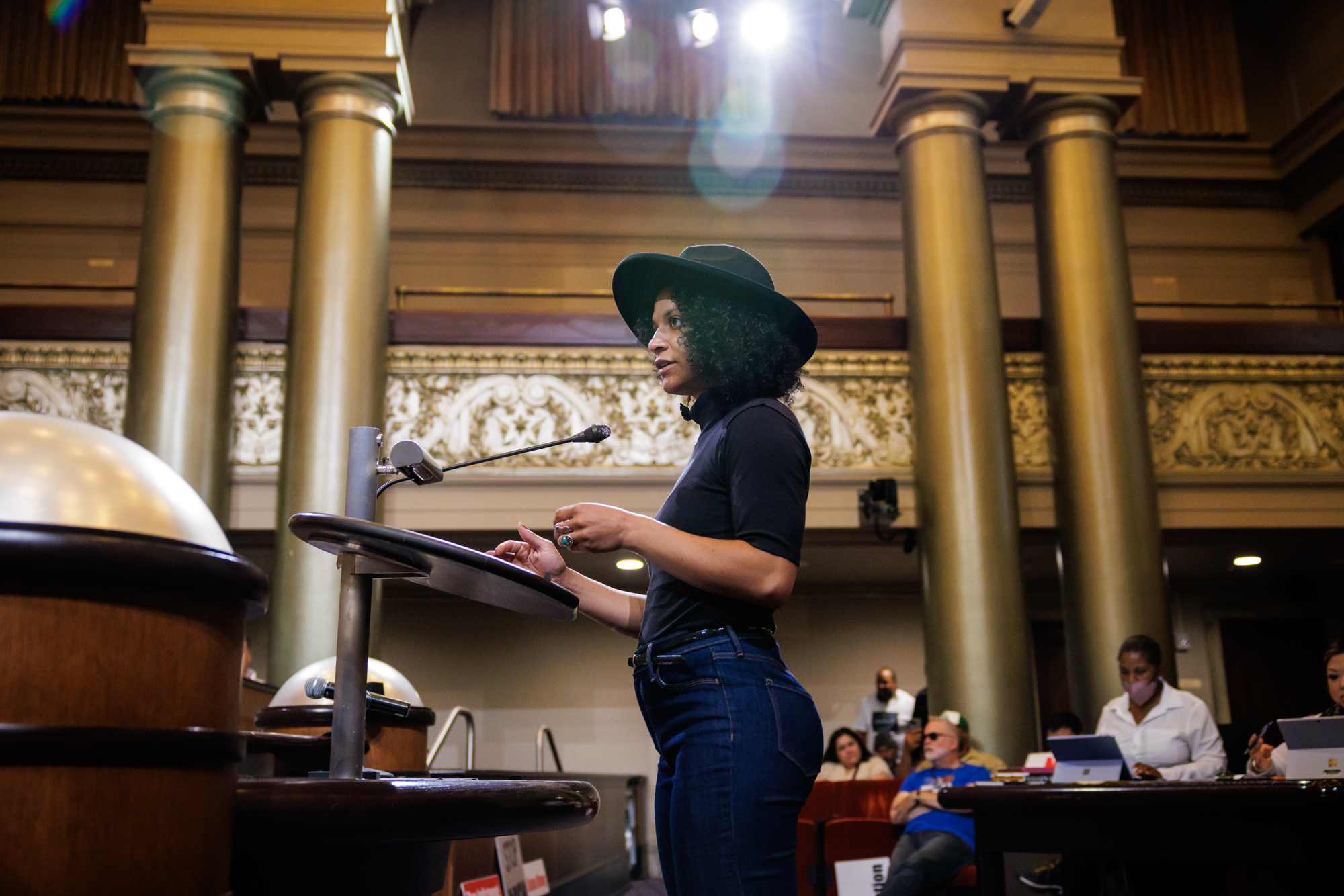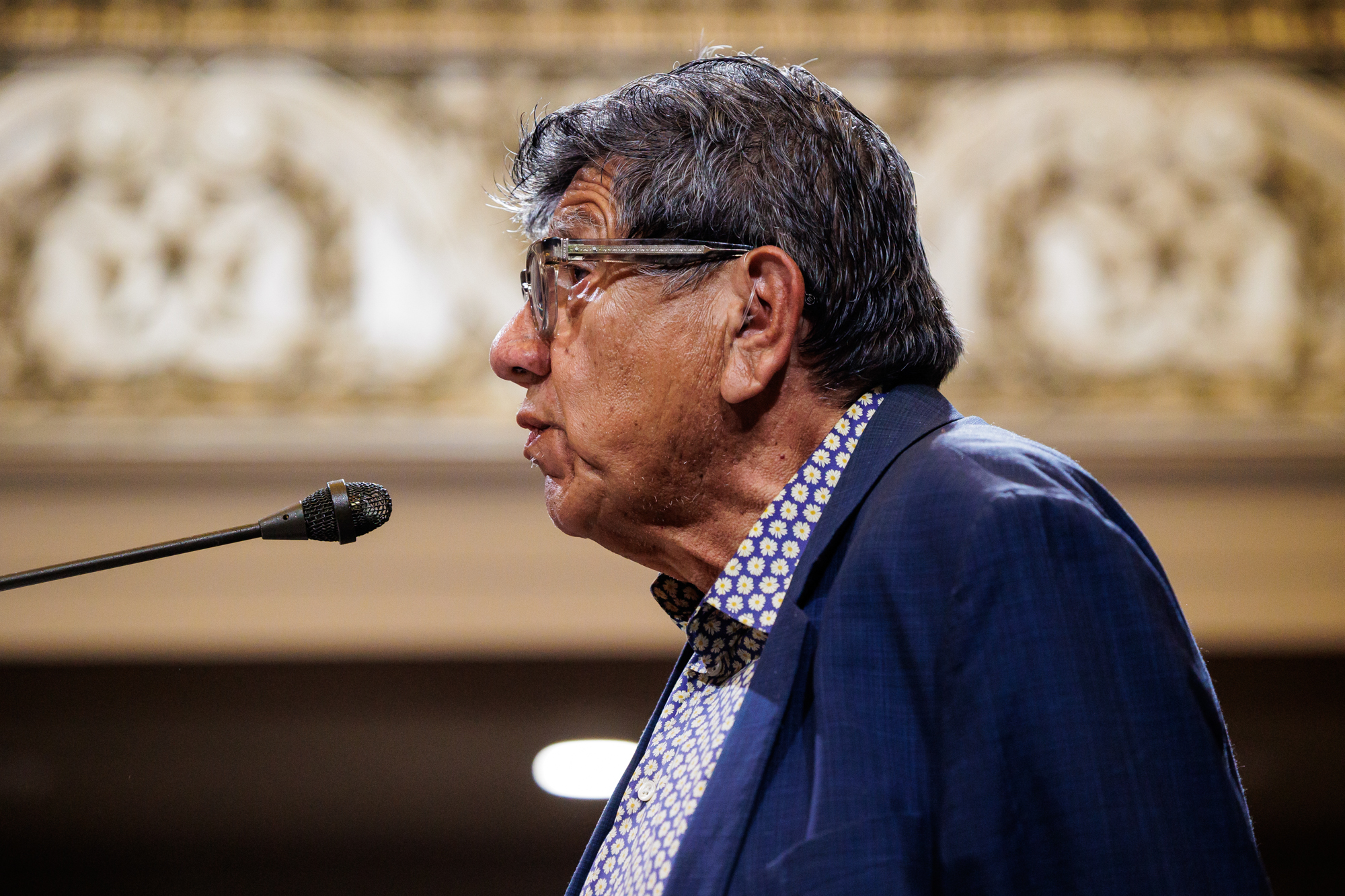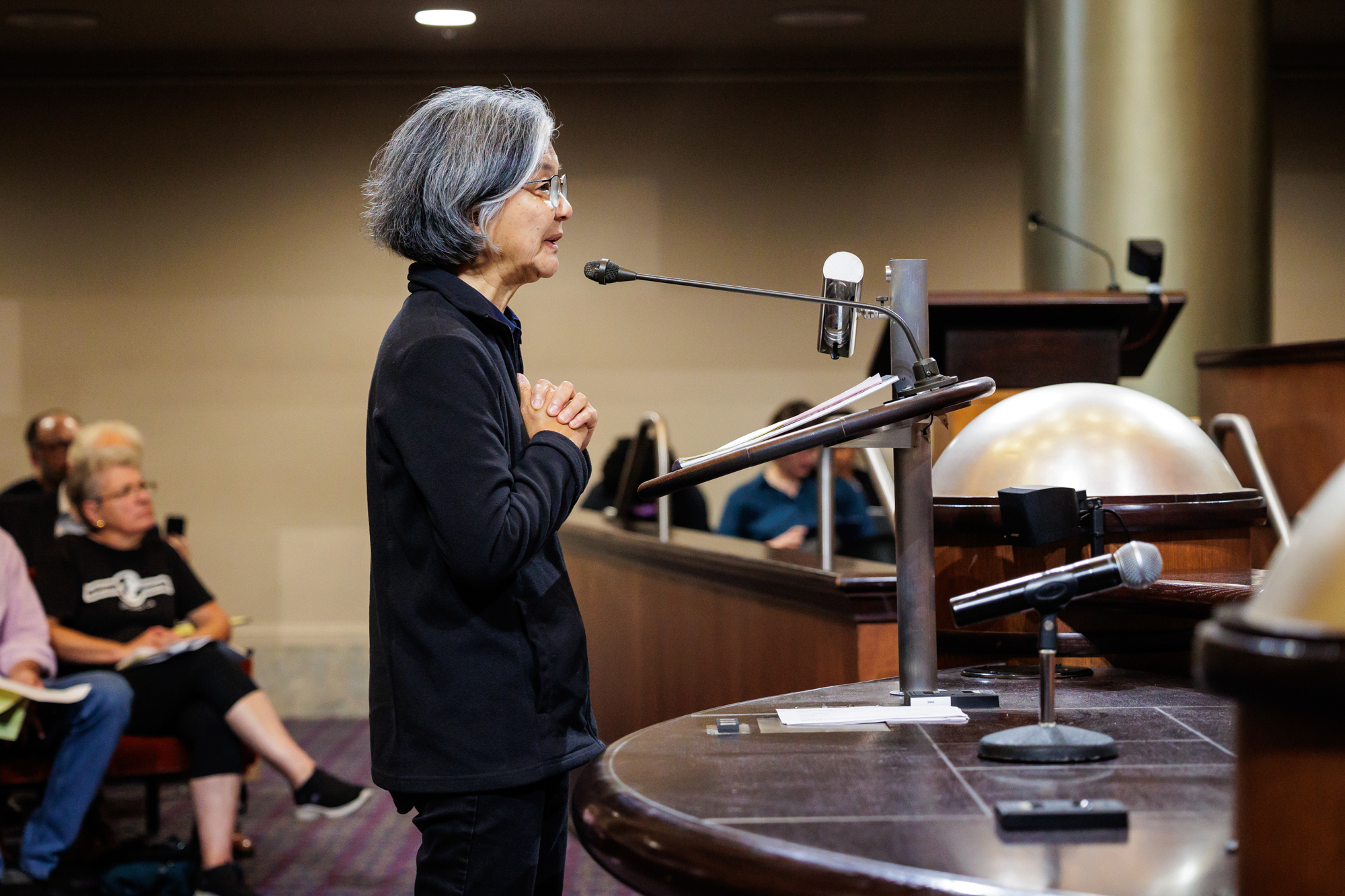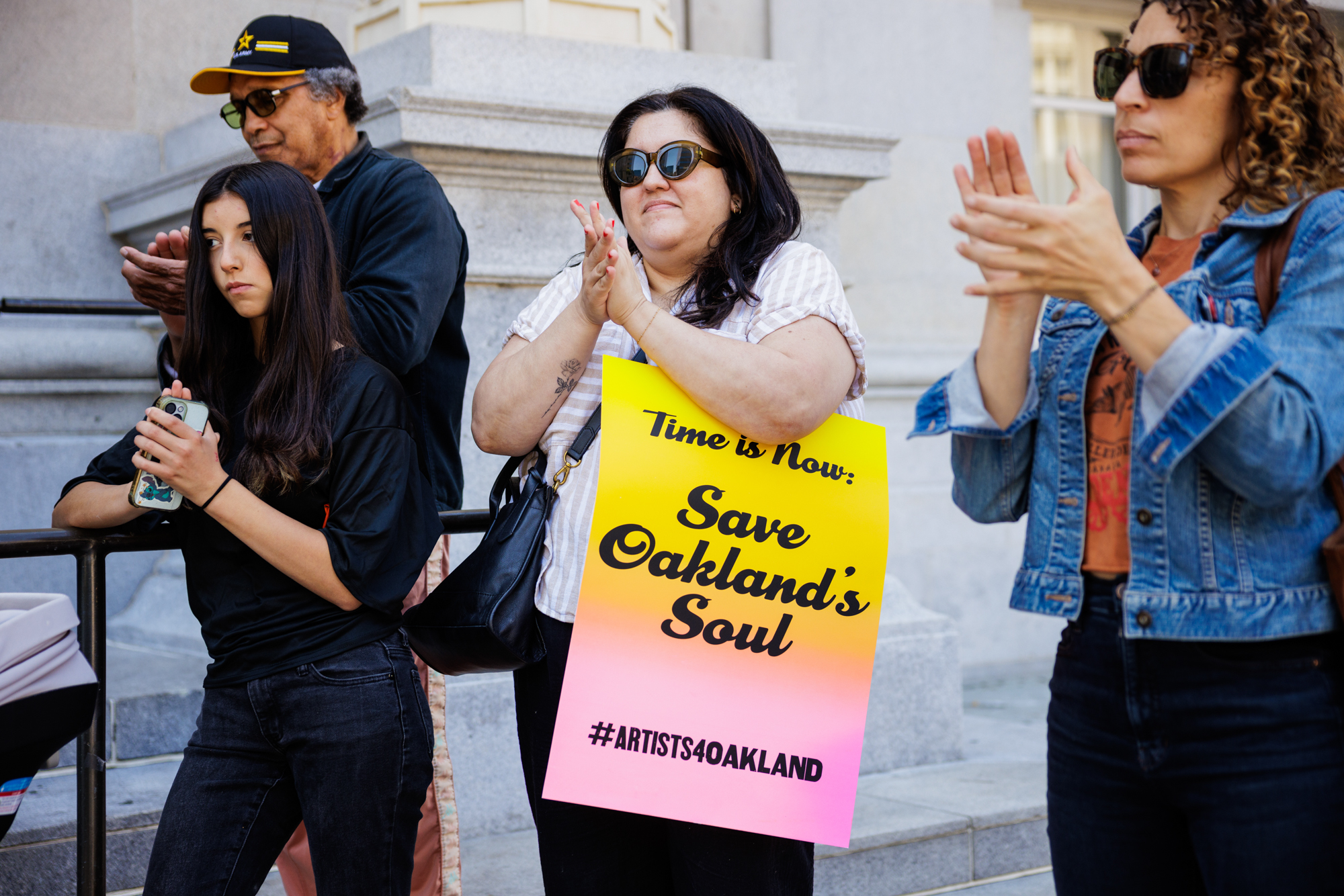In most American municipalities, the elimination of one management job in city government would hardly garner notice. But Oakland is not most American municipalities, which explains why, at 2:30 p.m. on Tuesday afternoon, more than 30 people had gathered on the steps of City Hall to call for reinstating the staff position of Cultural Affairs Manager.
“As simply as I can put it, the arts will not get by without this position,” said Cat Brooks, the Oakland artist, activist and previous mayoral candidate. “Anyone who is in the town, lives in the town or loves the town knows that arts and culture is our heartbeat. So if you’re interested in the heartbeat of Oakland, this position matters to you.”
It marked the third straight week of organized protests against the elimination of the position in Oakland’s latest budget, which was adopted by city council on June 11. New city expenditures, which cutting the Cultural Affairs Manager would help pay for, include $1.4 million in sideshow prevention, $1 million for the establishment of entertainment zones and an increase to police staffing.
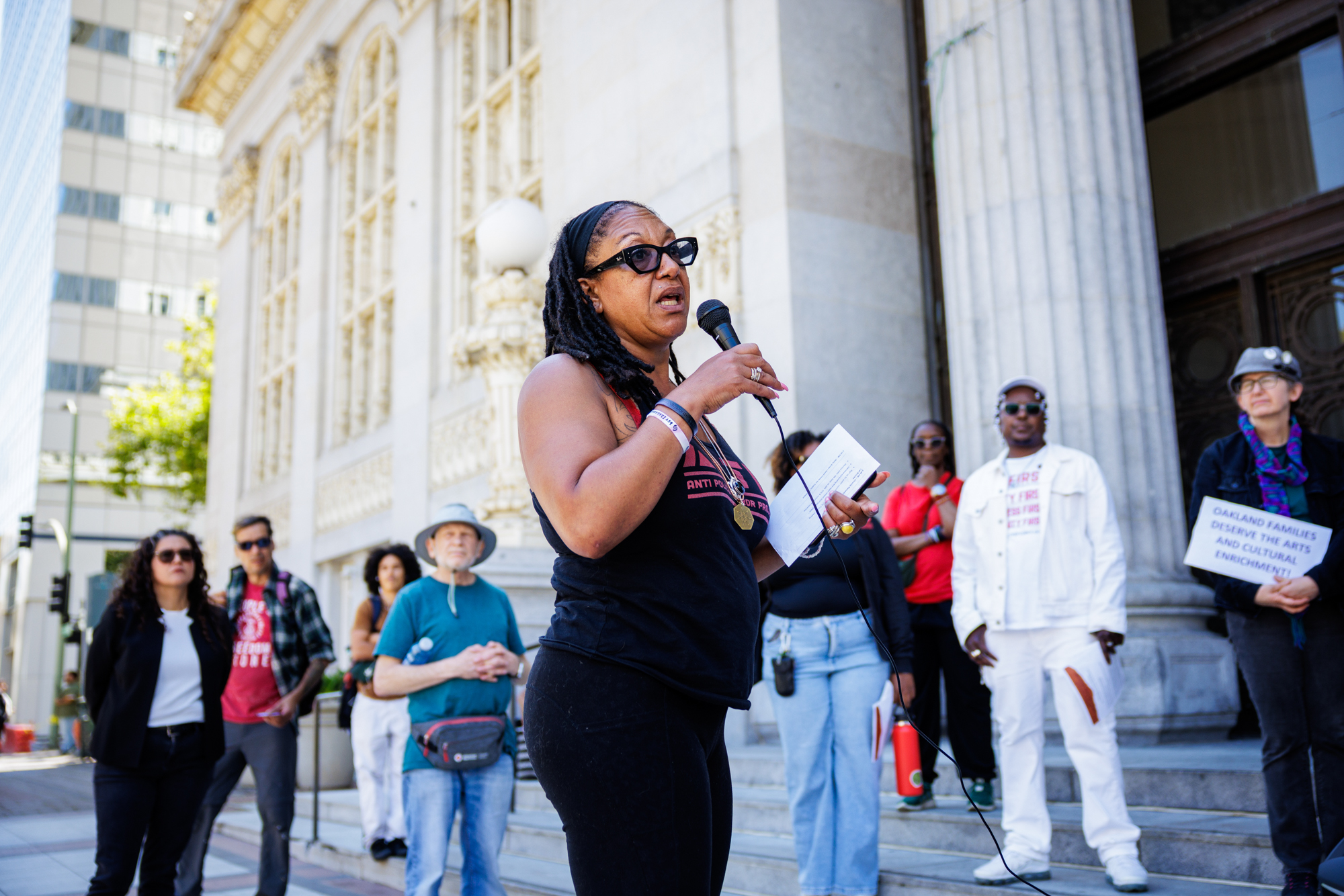
Explaining the need for a Cultural Affairs Manager to the average citizen poses a challenge, several attendees noted. It is a city government job, in a place where many artists and musicians are either unconcerned with or directly opposed to city government.
“I used to actually be one of those artists who did not really feel like the city had anything to offer me,” said Kev Choice, a musician and educator who joined the Cultural Arts Commission in 2020.
